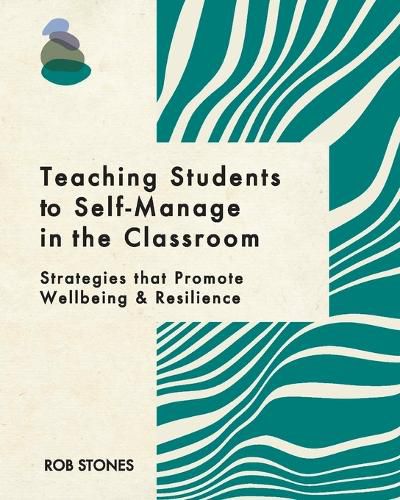Readings Newsletter
Become a Readings Member to make your shopping experience even easier.
Sign in or sign up for free!
You’re not far away from qualifying for FREE standard shipping within Australia
You’ve qualified for FREE standard shipping within Australia
The cart is loading…






This title is printed to order. This book may have been self-published. If so, we cannot guarantee the quality of the content. In the main most books will have gone through the editing process however some may not. We therefore suggest that you be aware of this before ordering this book. If in doubt check either the author or publisher’s details as we are unable to accept any returns unless they are faulty. Please contact us if you have any questions.
'Teaching Students to Self-Manage in the Classroom' is a book full of strategies for reducing teacher stress while growing student capability. It is desirable for both schools and society that young people learn how to self-manage responsibly. However, the need for students to take ownership of their behaviour and learning is often obscured by the misconception of many teachers that it is their job to manage the young people whom they are teaching. If we draw on Biological Neuroscience and Cognitive Psychology we will find that we can't impose self-control from the outside. If teachers try to impose their own will on the behaviour of their students they may be rewarded with compliance, but they are just as likely to provoke defiance. This battle of wills turns the classroom into a conflict zone instead of a mutually satisfying place of learning. The strategies promoted in this book propose that instead of teachers attempting to manage students, young people are taught to self-manage. Like everything that is taught, the acquisition of self-management skills is a learning process. As young people are taught how to take responsibility for themselves, they move incrementally from unable to able, from unskilled to skilled. In schools, we don't blame students because they are slower learners. We persist. Inevitably, some students will learn to manage their own behaviour more slowly than others. With these students too, it is more effective to persist patiently than to blame and punish. The purpose of this book is to offer more than 100 strategies that will teach students HOW to self-manage. When students know HOW to behave responsibly, they are most likely to do so. Teachers who adopt these approaches and strategies will find that their professional satisfaction is enhanced and they can enjoy their work in the classroom.
$9.00 standard shipping within Australia
FREE standard shipping within Australia for orders over $100.00
Express & International shipping calculated at checkout
This title is printed to order. This book may have been self-published. If so, we cannot guarantee the quality of the content. In the main most books will have gone through the editing process however some may not. We therefore suggest that you be aware of this before ordering this book. If in doubt check either the author or publisher’s details as we are unable to accept any returns unless they are faulty. Please contact us if you have any questions.
'Teaching Students to Self-Manage in the Classroom' is a book full of strategies for reducing teacher stress while growing student capability. It is desirable for both schools and society that young people learn how to self-manage responsibly. However, the need for students to take ownership of their behaviour and learning is often obscured by the misconception of many teachers that it is their job to manage the young people whom they are teaching. If we draw on Biological Neuroscience and Cognitive Psychology we will find that we can't impose self-control from the outside. If teachers try to impose their own will on the behaviour of their students they may be rewarded with compliance, but they are just as likely to provoke defiance. This battle of wills turns the classroom into a conflict zone instead of a mutually satisfying place of learning. The strategies promoted in this book propose that instead of teachers attempting to manage students, young people are taught to self-manage. Like everything that is taught, the acquisition of self-management skills is a learning process. As young people are taught how to take responsibility for themselves, they move incrementally from unable to able, from unskilled to skilled. In schools, we don't blame students because they are slower learners. We persist. Inevitably, some students will learn to manage their own behaviour more slowly than others. With these students too, it is more effective to persist patiently than to blame and punish. The purpose of this book is to offer more than 100 strategies that will teach students HOW to self-manage. When students know HOW to behave responsibly, they are most likely to do so. Teachers who adopt these approaches and strategies will find that their professional satisfaction is enhanced and they can enjoy their work in the classroom.